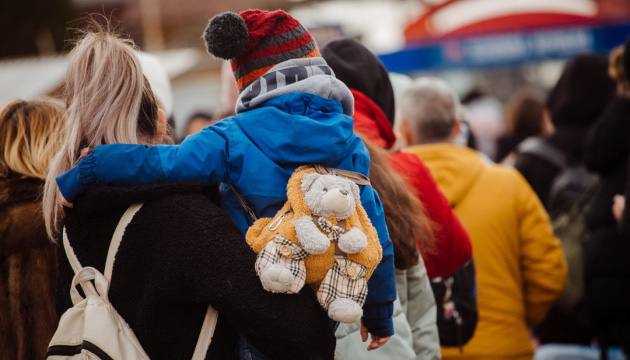The state should work out long-term solutions to the IDPs problems – human rights activists say

Overall, Ukraine has managed to relocate a huge number of people who were forced to leave their place of residence as a result of the beginning of large-scale Russian aggression on February 24, 2022. However, the need for long-term solutions to the problems of internally displaced persons (IDPs) is now at the forefront. This was discussed during the online discussion “The needs of IDPs in the context of full-scale aggression by the Russian Federation. Challenges of 2022”.
“It seems to me that it is very important to understand the needs and opportunities in the short, medium and long-term perspective. What needs to be done to address their needs. What can the state do, what can be offered to international donors, etc.,” said Vyacheslav Likhachev, a member of the expert council of the Center for Civil Liberties, while opening the discussion.
In general, experts note that the most important challenge for Ukraine in this regard now is the implementation of strategies to address the problems of IDPs during the ongoing acute phase and the continued movement of residents from the areas of hostilities, and temporary occupation. The state and local authorities have shown their readiness to cope with the relocation crisis, but it is now a matter of developing long-term solutions on an unprecedented scale. The scale that neither Ukraine nor other countries have encountered.
“Without the experience of 2014-15, there would be a collapse now. So far, the state has managed to provide shelter to a large number of people, but if we talk about early decisions, then in this sense there is no readiness to adopt and implement them. People are returning from abroad, from relatively safe areas. The most acute problem is the provision of permanent housing, many people live in transit centers for more than 2 months. Resettlement of those who have nowhere to return and deoccupied territories,” said Yulia Tralo, Legal Aid Coordinator of the Right to Protection (R2P) NGO.
Experts also emphasize the importance of the rational and even distribution of state financial resources aimed at meeting the needs of IDPs.
“In 2022, we have our experience in matters of internal movement gained since 2014 after the annexation of Crimea and Sevastopol, the occupation of parts of Donetsk and Luhansk regions. The success of responding to large-scale internal displacement challenges depends on national, regional, and local levels and, of course, coordination with international partners. The state already needs to update the strategy for the integration of internally displaced persons, the formation of approaches to addressing the issues of those returning to their places of residence. Also, work should continue and real steps should be taken to eliminate regulatory and practical shortcomings. The work at the local level deserves special attention,” said Maria Krasnenko, a lawyer working with the Public Holding “Influence Group”.
In addition, speakers emphasize that Ukraine should already be prepared for the fact that the flow of international donor aid will decrease. Accordingly, it is necessary to take care of the efficient allocation of budget resources, to prepare the basis for solving various problems of internally displaced persons.
“Vostok-SOS international partners, which have been supporting Ukraine since the first days of the full-scale invasion, are gradually reducing the intensity of humanitarian assistance. Buying basic necessities (food, hygiene kits) in Europe is becoming increasingly difficult due to rising logistics costs and purchase costs. The money raised as donations for Ukraine is gradually running out.
Instead, donors are increasingly considering providing cash benefits to IDPs, and we, as a charity, see a number of issues related to streamlining financial flows. In particular, the lack of a single all-Ukrainian system of accounting for payments received by IDPs, which would minimize cases where the same people receive funds under different programs, the risks of misuse of money by beneficiaries, transparency in the distribution of benefits and reporting,” – Oksana Kuyantseva, manager of the humanitarian direction “East SOS” emphasized.
Background note:
The online discussion “The needs of IDPs in the context of full-scale aggression by the Russian Federation. Challenges of 2022” took place within the framework of the project“ Item 7 ”(official title “Promoting Social Cohesion in Ukraine”) in partnership with Vostok SOS and the Center for Civil Liberties, with the support of the American Bar Association of the Rule of Law Initiative in Ukraine (ABA ROLI Ukraine) .

